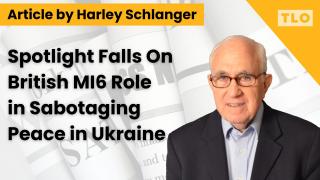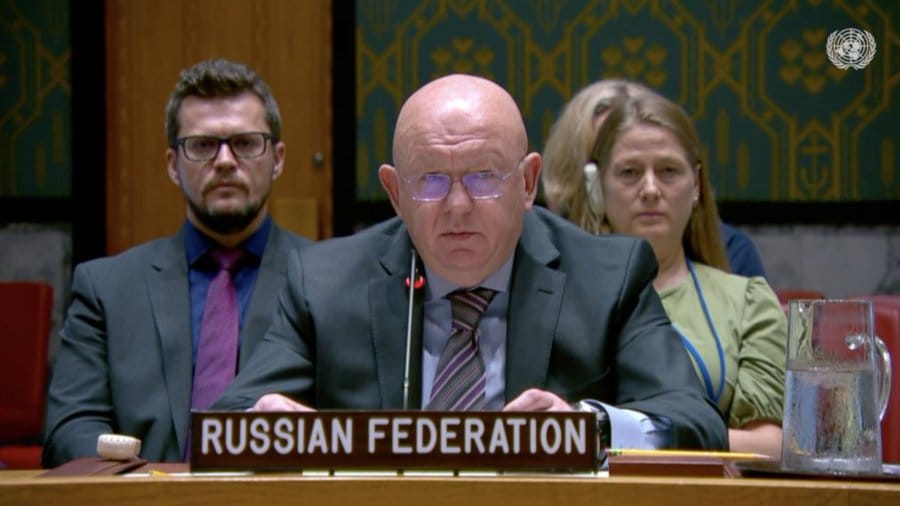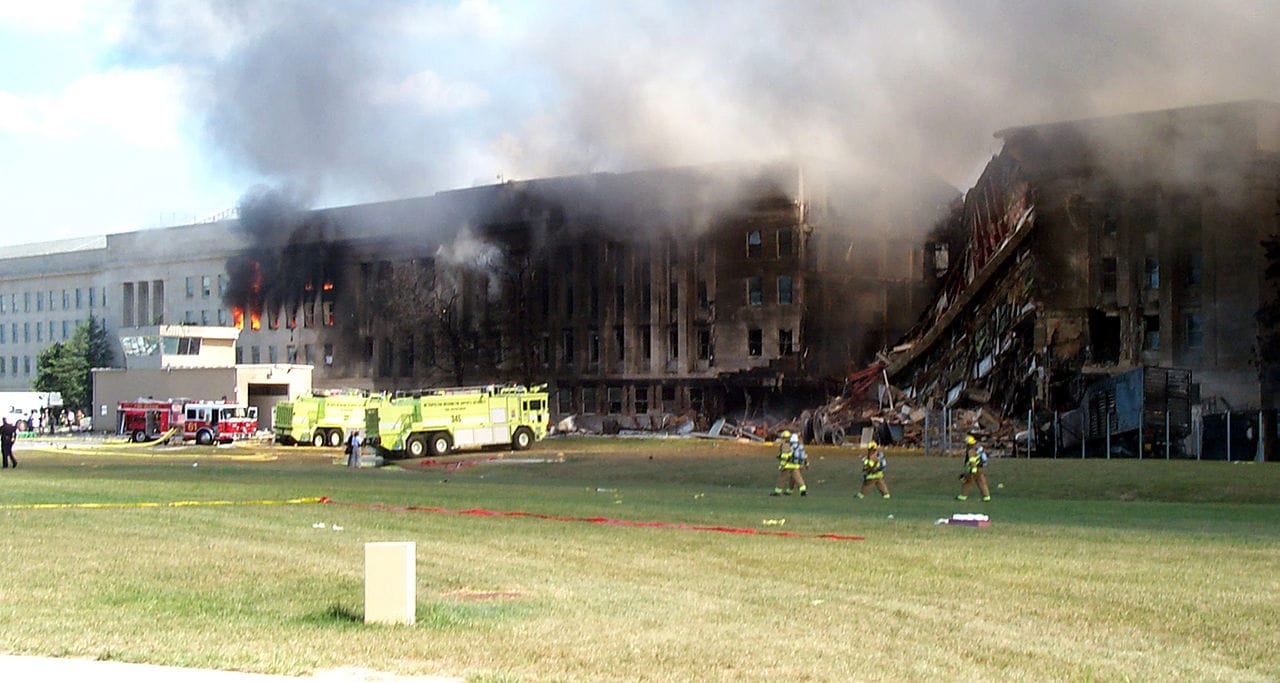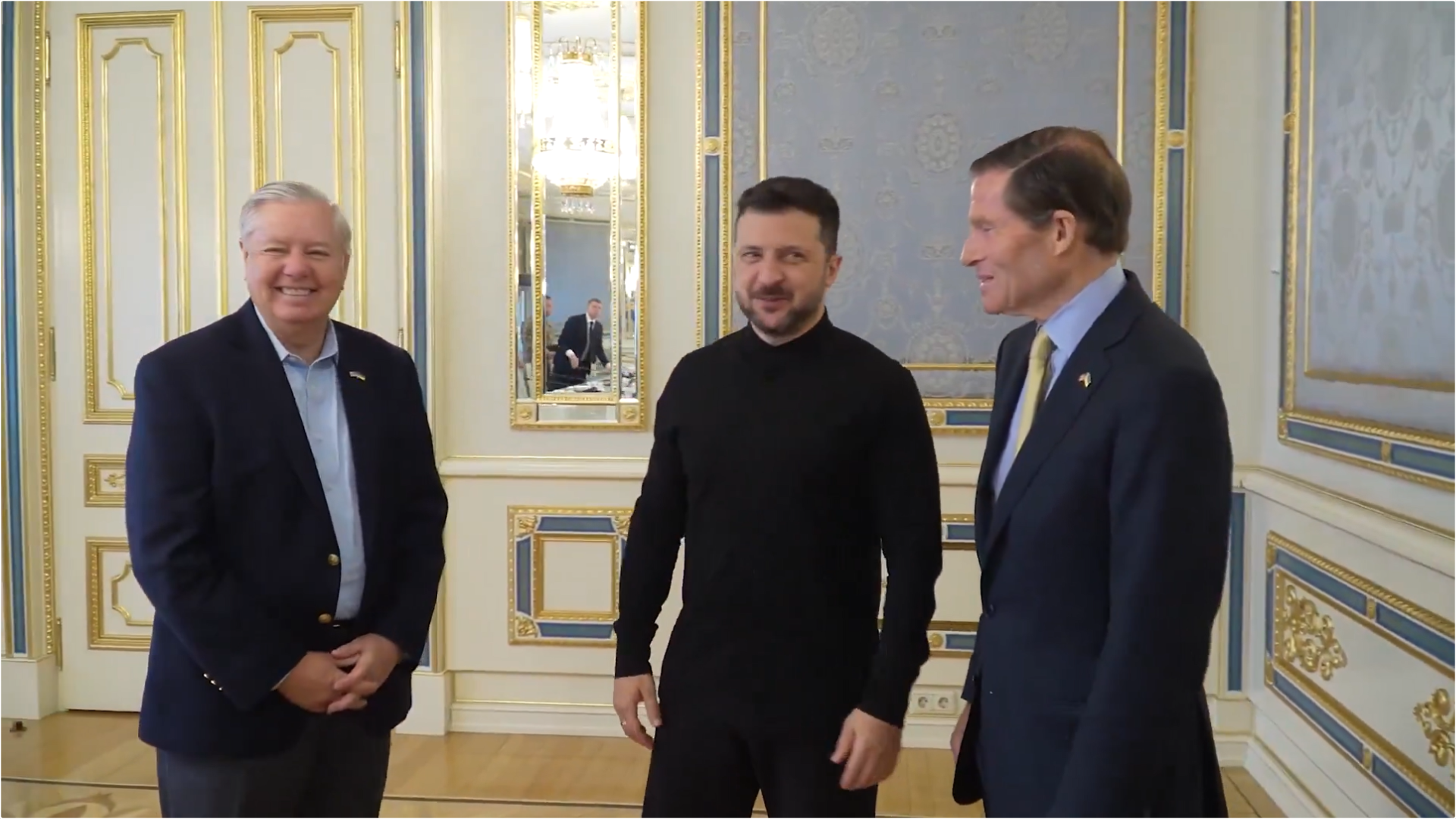Article by Harley Schlanger
Update: After the article below was completed, the Israeli Air Force launched a massive series of strikes against Iran. The heavy bombing was focused on Iran's nuclear sites and research facilities; there were also targeted assassinations of military officials and nuclear scientists. In a hearing before the United Nations Security Council on June 14, Russia's Permanent Representative to the U.N., Vassily Nebenzia, suggested that there was a British hand in Israel's actions.
Nebenzia stated, "In the context of Israel's current strikes there is something that merits our particular attention. I refer to reported possible coordination of actions between Israel and British special services – immediately after the Israeli strikes on Iran the British sheltered the Israeli aircraft involved in the operation at their base in Cyprus."
In responding to Nebenzia's charge of British collaboration with Israel against Iran, investigative journalist Kit Klarenberg went further on the British role, citing similarities between tactics employed by Israel against Iran to those of the British-directed drone attacks on Russia. In a post on X, he wrote "Given Ukraine's British-run 'Operation Spiderweb' was virtually identical to the smuggling of Israeli drones into Iran, this is very likely to be true."
Russia's UN Ambassador Vassily Nebenzia. Credit: UNGA
In the immediate aftermath of the Israeli assault, the confusing and often-contradictory comments from President Trump concerning whether he had foreknowledge of Israel's attack, or had approved it, have again raised the question addressed in the article below: Was Trump aware of and perhaps supportive of the attack, or was he kept in the dark? And if the latter were true, is there a British-directed coup against Trump underway, run by the same Anglo-American "Deep-State" intelligence networks behind the fraudulent Russiagate story? Whether these questions can be answered in time may determine whether the human race can avoid the tragedy of a nuclear Armageddon.
It is likely that these questions came up in a phone conversation between Trump and Putin on June 14.
***
The drone assault against Russian airfields and attacks on infrastructure on June 1, hailed by a chorus of lunatics as a "breakthrough" for Ukraine in NATO's proxy war against Russia, pushed the world ever closer to nuclear war. As tensions heightened and nerves frayed, the question kept coming up: Was President Trump in the loop? If he had been briefed before the attacks, it means his claim that he was unaware in advance of the attack was not true, and would destroy his credibility as one leading negotiators to end the fighting. If it is discovered that he had not been briefed, meaning that it was done without his knowledge, it raises a perhaps even more troubling question: Who is making these decisions in the west?
This raises a further question: If the operation was run without Trump's knowledge, might that imply there is a coup underway, to remove Trump, to prevent the normalization of ties between the U.S. and Russia which he is supporting? Such a hypothesis was first raised by Lyndon LaRouche twenty-four years ago in an article about the terror attack against the U.S. on September 11, 2001, to explain what appeared to have been an inexplicable failure of counter-terror security and intelligence measures. The article was published in the Executive Intelligence Review on January 11, 2002 under the title, "Zbigniew Brzezinski and September 11."
LaRouche writes:
For those who are able and willing to accept the way in which history actually works, the evidence provided by the U.S. events of Sept. 11th permitted but one concise conclusion: The crucial developments inside the U.S.A., between the bookends of approximately 08:45 and 11:00 EDT, were a reflection of an attempted military coup d’état against the U.S. government of President George W. Bush.
He elaborates, identifying what he calls the only two "available...alternative explanations." First, that "pre-established security safeguards, which had been instituted earlier against such types of contingencies, had, previously, simply been allowed to deteriorate to virtual non-relevance, that itself a very dangerous state of national security, or, the second, more likely possibility, was that some top-ranking U.S. military personnel 'at the switch,' turned off a significant part of those standing security pre-arrangements which would have been sufficient, at a minimum, to defeat, at the least, the attack upon the Pentagon itself."
A view of the Pentagon after being struck on Sep. 11, 2001.
In the absence of a definitive statement from relevant U.S. authorities today, of Trump's foreknowledge or ignorance of the attack on Russia, many in the anti-Trump blogosphere are putting forward rumors and suppositions to smear his character, designed to undermine his authority, if not remove him from office. Such attacks are highly reminiscent of the Russiagate assault on Trump which began in late summer 2016, once he had won the Republican nomination for President and, which like the present assault, pointed to British intelligence as the instigators of the operations.
"Strategic Ambiguity"
In this kind of crisis, "strategic ambiguity" as an approach designed to keep one's adversaries "in the dark"—while praised by some as a legitimate part of hybrid warfare—is irresponsible and dangerous, especially if one engaged in such deceptions is in the middle of negotiations, as Trump is. Transparency is necessary, to build trust in the leader with whom you are engaged in diplomacy. Employing strategic ambiguity as a means of keeping your opponents off balance may serve to buy time, but can have dangerous consequences.
When Joe Biden was in the White House, it was clear to Russian intelligence and military circles that he was not capable of making decisions. The term used to convey this by some well-informed Russian media was "the collective Biden", referring to the networks trained by Russophobe Zbigniew Brzezinski, centered around Tony Blinken. Since Trump's election in 2024, his actions to normalize relations with Russia—including several lengthy phone conversations with Putin, and meetings between envoys of the two Presidents—offered hope that he would break with Biden's war policy, and the U.S. could use its influence to end the war and reach a sustainable peace. To accomplish this, transparency is an urgent requirement for leadership.
The question of what Trump knew is more acute given the presence of foolish American provocateurs – Senators Lindsey Graham and Richard Blumenthal, and former CIA Director and Secretary of State Pompeo – in Kiev during the attacks, and Graham's ranting about the "toughest sanctions ever" which he introduced in the Senate. While Trump himself, out of frustration with the lack of progress with the peace process, had threatened more sanctions if Putin did not accept a ceasefire, he backed away from that threat, and there are reports that he is pressuring Republicans to put a hold on Graham's sanctions bill.
Senators Lindsey Graham and Richard Blumenthal visit Kiev on May 30.
Russians Blame the British
The Russians, not content to sort through competing narratives from western media for hints as to who is responsible for the escalation against them from the West, are convinced that the planning and coordination of the attacks involved operatives of British MI6 and the CIA, with a special emphasis on the UK. Following several substantive phone calls between Putin and Trump, and meetings between envoys sent by both leaders over the last months, the Russians refrained from blaming Trump. Even before the drone attack on June 1, the Russians blamed European governments for the escalation of drone strikes. The Russian Foreign Ministry issued a statement on May 23 which said, "We believe these attacks are a direct result of the support provided to Ukrainian Nazis, primarily by a number of European countries, led by the United Kingdom, France, Germany, and the EU leadership. We are convinced that they bear a portion of responsibility for these crimes. We will push to bring an end to this policy." The statement said the escalation was a "clear attempt to derail peace talks and disrupt the process that began in Istanbul following an agreement between President Vladimir Putin and President Donald Trump."
It did not escape their attention that the June 1 strikes occurred on the eve of the next round of negotiations, which took place in Istanbul on June 2. British initiatives to sabotage an end to the war are not new, and include the famous intervention undertaken on behalf of NATO by then-Prime Minster Boris Johnson, who arrived in Kiev in April 2022 to strong-arm Zelensky to reject an agreed-upon ceasefire initialed by Ukraine and Russian negotiators.
Foreign Minister Sergei Lavrov pointed directly at the UK as responsible for the escalation on June 1. While acknowledging Ukrainian involvement in terrorist actions, he added that the effort "would be helpless without the support—I wanted to say, of the Anglo-Saxons. But now it will have to be without the ‘Saxons’ (i.e., done only by the Anglos)... Although, who knows, maybe some U.S. special services are also participating there by inertia. But the British are 100%.”
Among others weighing in on the British role was intelligence expert SVR Lt. Gen. (ret.) Leonid Reshetnikov, who was quoted in Sputnik saying that British intelligence has been out to destroy Russia for centuries, and that they are far more sophisticated and dangerous than the CIA.
Further evidence of the leading role played by the British is an investigative report filed by Kit Klarenberg on June 11 for the Grayzone. Klarenberg reported that leaked documents revealed the existence of a secret British military planning cell, outlining operations against the Russian Black Sea fleet, under the name "Project Alchemy." He wrote that "the files reveal high-ranking British military and intelligence figures drew up detailed plans to 'maximize attrition of [Moscow’s] Black Sea Fleet,' plotted to blow up the Kerch Bridge connecting Crimea to mainland Russia with fertilizer bombs, and even devised blueprints for a series of submersibles which would allow Ukrainian divers to plant mines on Russian ships and infrastructure." Explosives were detonated for that purpose on June 2, but did not succeed in toppling the bridge.
As the "Coalition of the Willing", whose principal initiators included British Prime Minister Starmer, continues to promote an endless war scenario, their strategy appears to alternate between denigrating Trump's efforts while building an independent war machine. A major step toward undermining their role would be to eliminate lingering questions about the U.S. role. This could include, but not be limited to Trump issuing unambiguous statements denouncing the escalation against targets inside Russia as terrorism; cutting off any further military or financial assistance to Ukraine's declining armed forces; and pledge to aid Russia against such terrorism in the future.
In his comments on the events of 9/11 as a potential coup, LaRouche pointed to the early and clear offer from Putin of support for President George W. Bush and the U.S. to defend it against further terrorist attacks, as a decisive gesture which provided some calm at moment of profound tension, which could have led to a nuclear confrontation between the two nuclear-armed super-powers. A similarly clear statement of intent from Trump today could push the peace process ahead, by conveying to Zelensky and his NATO puppet masters that it is time to acknowledge they cannot win, and to instead work toward accepting the legitimate security concerns of all parties.









